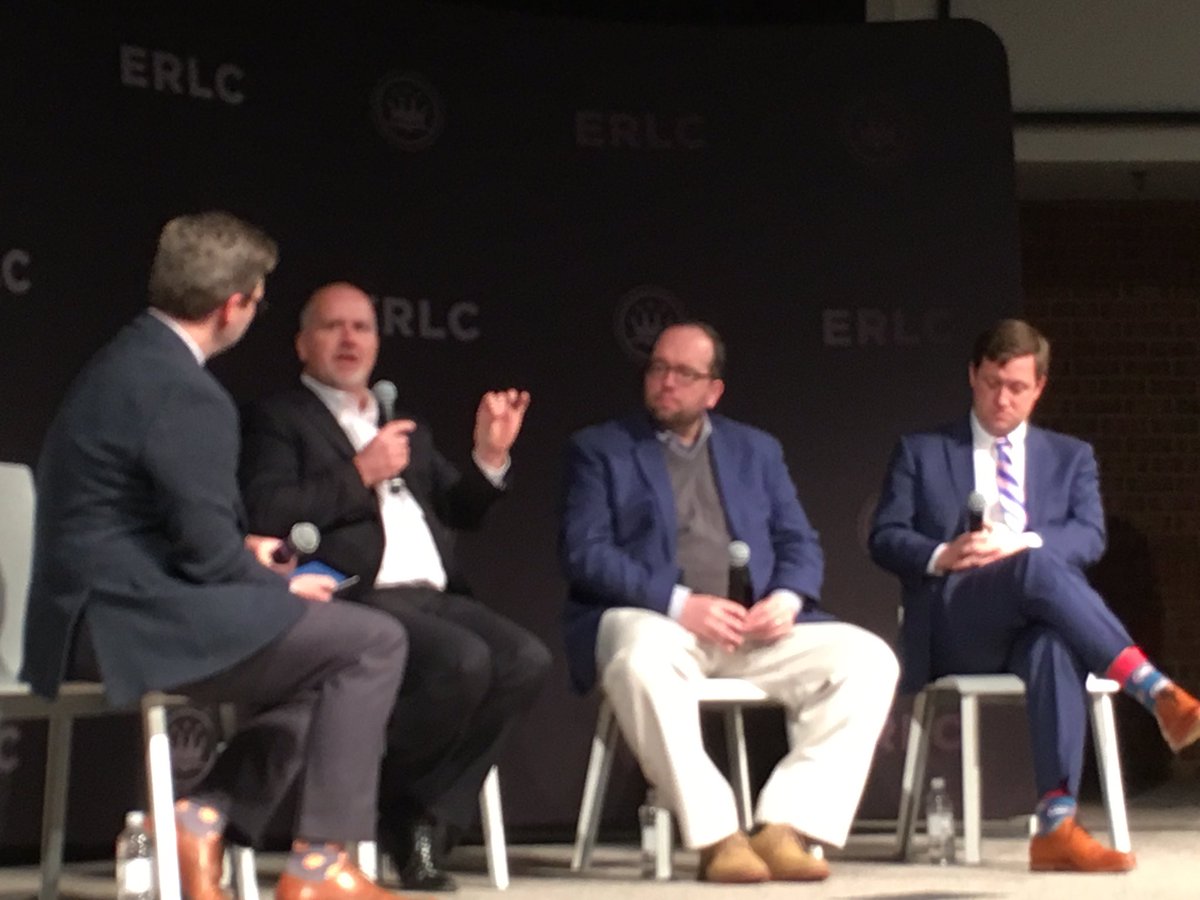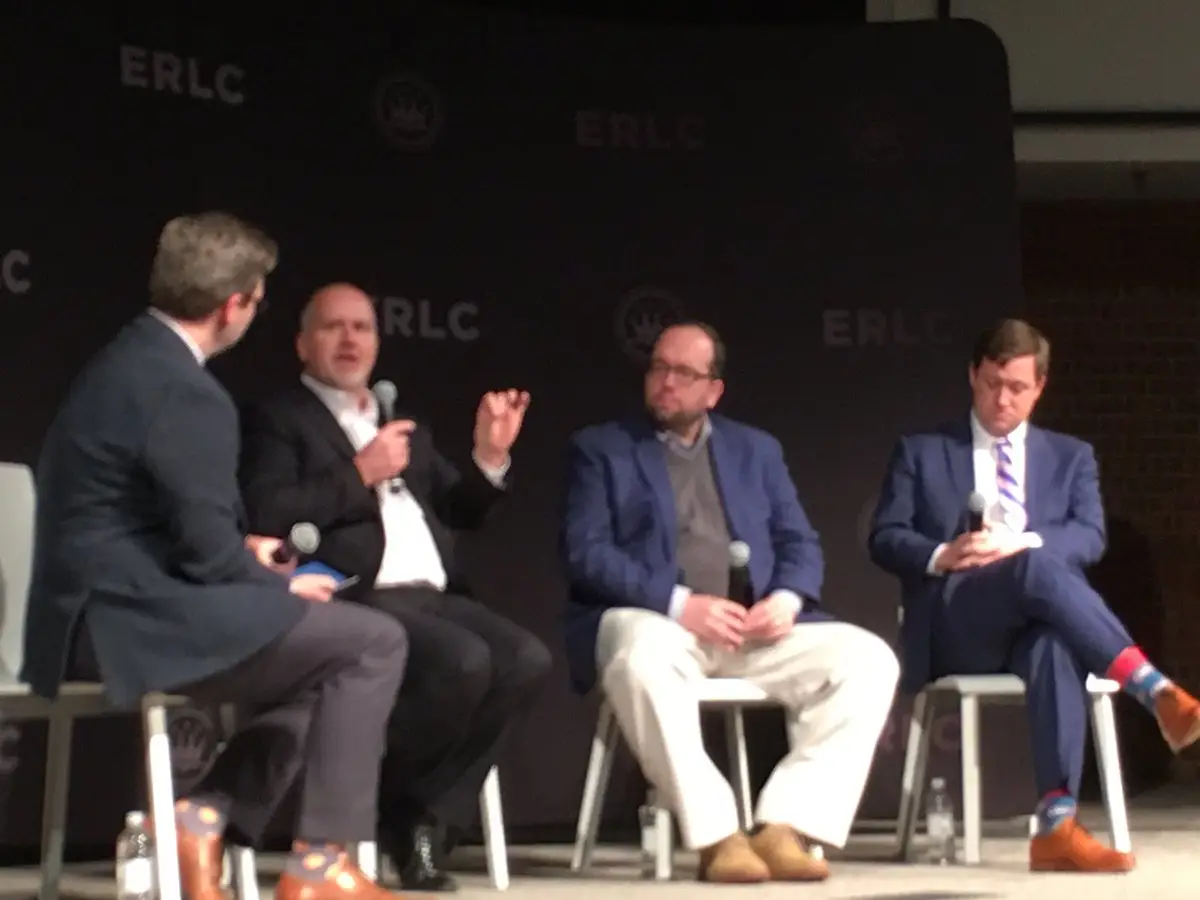NASHVILLE, Tenn. – Reform of the criminal justice system and ministry to prisoners both provide important opportunities for Christian involvement, panelists said at a Southern Baptist-sponsored forum in Nashville.

Spokesmen from the Southern Baptist Ethics and Religious Liberty Commission (ERLC), Tennessee Gov. Bill Lee’s office and Prison Fellowship addressed criminal justice and rehabilitation as part of the ERLC Leadership Luncheon event Dec. 3 at the Southern Baptist Convention building in Nashville.
“[I]t’s easy for us to kind of put out of our mind the incarcerated population – sort of throw away the key, lock them up and don’t think about them,” said Daniel Darling, the ERLC’s vice president for communications.
The data demonstrate “simply incarcerating a lot of people doesn’t actually make us safer,” he told the audience of pastors, leaders and other Christians from Middle Tennessee. “But rehabilitation and getting people back on their feet and having real pathways for people to change is really important, not just for the dignity of the incarcerated population but also for public safety.”
Joseph Williams, the governor’s director of external affairs and a member of his senior staff, said it is “not only all right but incumbent upon Christians to say, ‘These actually aren’t political issues; these aren’t ideological debates; these are about human beings, victims, perpetrators, broken families, hopelessness.'”
In doing so, he said, Christians are saying, “[W]e are called to be salt; we are called to be light; and therefore we are going to engage in these issues – not in the ways that the world does, not in the battles as they are waged on the political battlegrounds but instead as Christ did, as our Savior did.”
Ministry to inmates is a “great place to start” for pastors and church members in breaking “the cycle of crime,” said Craig DeRoche, senior vice president of advocacy and public policy for Prison Fellowship. People all have the same problems, he said. “They look like fear and selfishness and guilt and shame and anger…. And Christ can solve those problems. So we don’t need unhealthy solutions. That’s the mechanics of breaking the cycle of crime in a person.”
The panel discussion followed an interview of Lee by ERLC president Russell Moore. In the interview, Lee explained his promotion of criminal justice reform in Tennessee came as a result of mentoring a man coming out of prison before he ran for governor.
Since being elected governor in 2018, Lee has maintained his mentoring role and has introduced the Volunteer Mentorship Initiative, which encourages Tennesseans to advise inmates. Assigned to implement the initiative, Williams said its goal is to bring people face to face with incarcerated people, “because once you do that, you can’t deny the imago dei” – the biblical doctrine that every human being has dignity because he or she is made in the image of God.
The biblical view of humanity calls for both ministry and accountability, panelists told moderator Brent Leatherwood, the ERLC’s director of strategic partnerships.
“God didn’t make any throwaway people – even someone who’s never going to leave prison,” DeRoche said. “How do we know where they rank in God’s eyes? [T]hey can be of service. And they can be redeemed in Christ. And they can contribute back and bring people to the cross.”
Christians care about the dignity of both the victim and perpetrator, Darling said.
“And part of that is holding [perpetrators] accountable as human beings before the state, which has been given authority by God,” he told attendees. “We consider them to be human beings, which means they have accountability and responsibility. But also, we care about the whole person – that we want a justice system that not only punishes them for their crime but also at least offers them a path to rehabilitation.”
In a representative form of government, Christians and other Americans “share in the shaping of the governments and the systems that are in our communities,” Darling said. “[We are] constantly looking at the systems of criminal justice and saying, ‘Are these working well for people, for human flourishing? Are they not only keeping us safe, but are they allowing people to rebuild their lives and is there incentive for people to not stay in the system?'”
The ERLC and other organizations have joined Prison Fellowship in its efforts at criminal justice reform in recent years. A significant victory in that campaign came last December with the bipartisan passage and signing into law by President Trump of the First Step Act. The new law is designed to promote the rehabilitation and societal re-entry of prisoners while maintaining public safety.
In 2017, the ERLC and two other organizations joined Prison Fellowship in issuing a call for a “fair and redemptive” justice system. The Justice Declaration urged followers of Jesus to support “proportional punishment,” care for victims of crime, minister to the families of prisoners, preach the gospel and disciple incarcerated men and women. The National Association of Evangelicals and Colson Center for Christian Worldview also joined in the initiative.
At the 2013 SBC meeting, messengers approved a resolution expressing “support of legislative policies that seek to reduce high incarceration rates without jeopardizing public safety” and affirmed that “probation and parole may serve as a wise, just, and effective alternative to prolonged incarceration for certain nonviolent offenders.”
Written by Baptist Press, the official news service of the Southern Baptist Convention.

